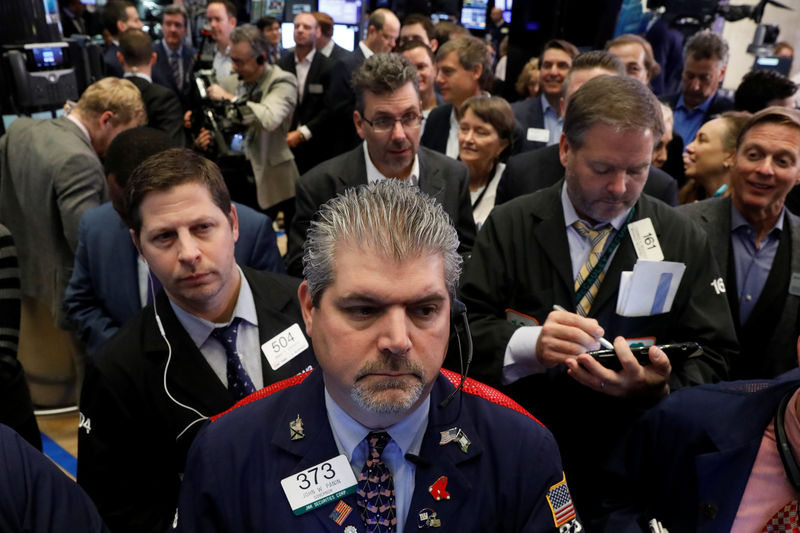By Sinead Carew
NEW YORK (Reuters) - The U.S. dollar was lower on Friday along with Wall Street stocks as investors pulled back from technology stocks and were sceptical President Donald Trump's Republican party would succeed in its efforts at overhauling U.S. tax law.
U.S. Treasury yields edged lower, in line with declines in U.S. stock indexes and German 10-year bond yields, as risk appetite faded. The yield curve continued to flatten after strong U.S. housing starts data for October and investors bet on further rate hikes from the Federal Reserve.
"The front end of the curve is building in the greater and greater probability of Fed rate hikes," said Tom Simons, money market economist at Jefferies in New York.
The U.S. House of Representatives voted in favour of its version of a tax overhaul bill that would cut corporate taxes on Thursday. But then investors' focus turned to the Senate's battle over its rival bill and worries about whether the House and Senate will ever agree on a compromise.
"Traders are not jumping the gun here. They're looking to see what happens as the political sausage-making process runs its course," said Karl Schamotta, director of global product and market strategy at Cambridge Global Payments in Toronto. He added that while potential benefits to the dollar may be priced in, tax reform disappointment would hurt it.
The dollar was also dented by a report that Special Counsel Robert Mueller's team last month subpoenaed Trump's election campaign for documents containing specified Russian keywords from more than a dozen officials.
The dollar index (DXY) fell 0.28 percent, with the euro
The S&P 500 fell as investors eyed the prospects for tax cuts and positioned themselves for the close of earnings season and what is typically a quieter week as many traders take a break around Thursday's Thanksgiving holiday.
"Everybody is looking at that tax plan and wondering exactly what are the devils in the details," said Bruce McCain, chief investment strategist at Key Private Bank in Cleveland.
The Dow Jones Industrial Average (DJI) fell 100.12 points, or 0.43 percent, to 23,358.24, the S&P 500 (SPX) lost 6.79 points, or 0.26 percent, to 2,578.85 and the Nasdaq Composite (IXIC) dropped 10.50 points, or 0.15 percent, to 6,782.79.
The pan-European FTSEurofirst 300 index (FTEU3) lost 0.29 percent and MSCI's gauge of stocks across the globe (MIWD00000PUS) was fractionally higher.
In the Treasuries market, the U.S. two-year note yield (US2YT=RR) climbed to a new nine-year peak of 1.73 percent. It was last at 1.725 percent, from 1.712 percent on Thursday. The note has touched the nine-year milestone for the last eight sessions.
Benchmark 10-year notes (US10YT=RR) last rose 5/32 in price to yield 2.3452 percent compared with 2.361 percent late on Thursday.
German 10-year bond yields showed their largest weekly fall in three weeks, with the safe-haven debt boosted by sales of risk assets and a fall in oil prices.
Oil rose more than 2 percent on Friday as a major U.S. crude pipeline was shut and traders anticipated an OPEC deal to extend curbs on production, but prices remained on track for their first weekly loss in six weeks.

U.S. crude